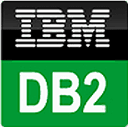Easily integrate Unity SDK with Webhooks using RudderStack
RudderStack’s open source Unity SDK integration allows you to integrate RudderStack with your undefined to track event data and automatically send it to Webhooks. With the RudderStack Unity SDK integration, you do not have to worry about having to learn, test, implement or deal with changes in a new API and multiple endpoints every time someone asks for a new integration.
Popular ways to use Webhooks and RudderStack
Send data anywhere
Automatically send data to any destination that supports webhooks
Customize event payloads
Easily modify payloads to meet the requirements of multiple webhook destinations
Ingest from any webhook
Automatically ingest data from any source that supports webhooks
FAQs
How do you integrate your Unity app with Webhooks?
Is it expensive to integrate Unity SDK with Webhooks?
How long does it take to integrate Unity SDK with Webhooks?
Do more with integration combinations
RudderStack empowers you to work with all of your data sources and destinations inside of a single app













